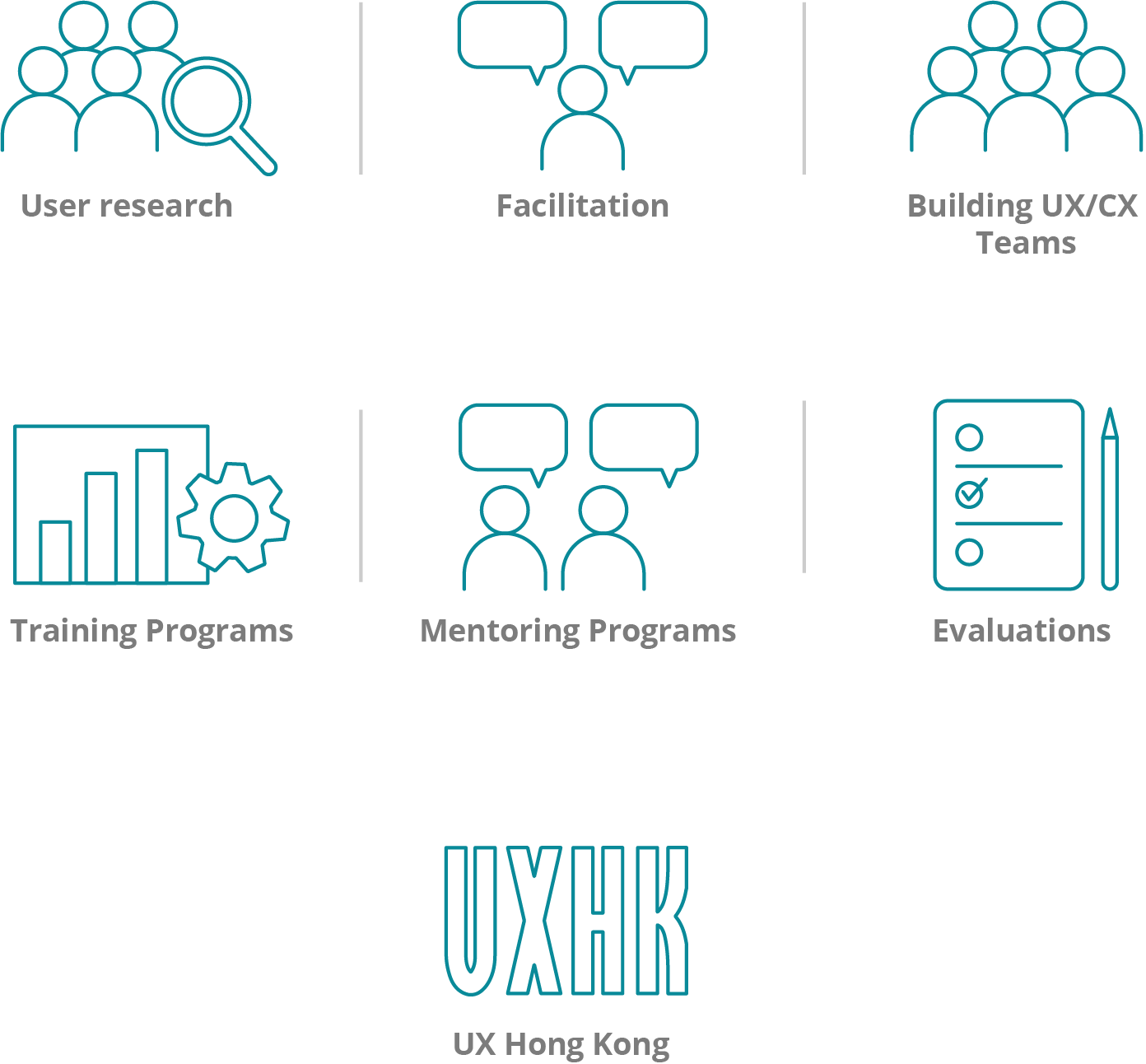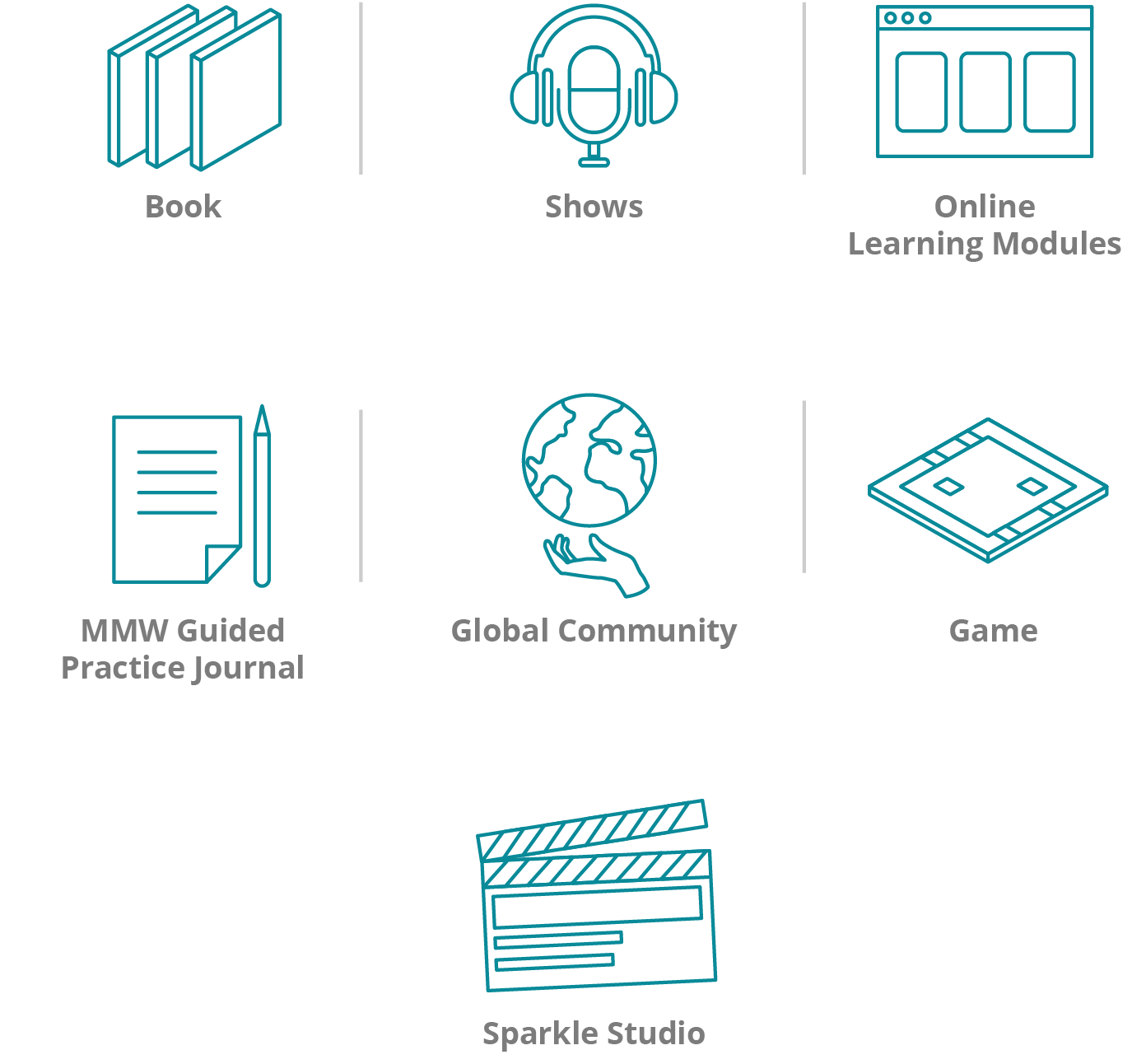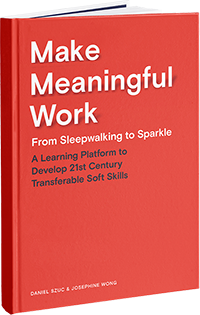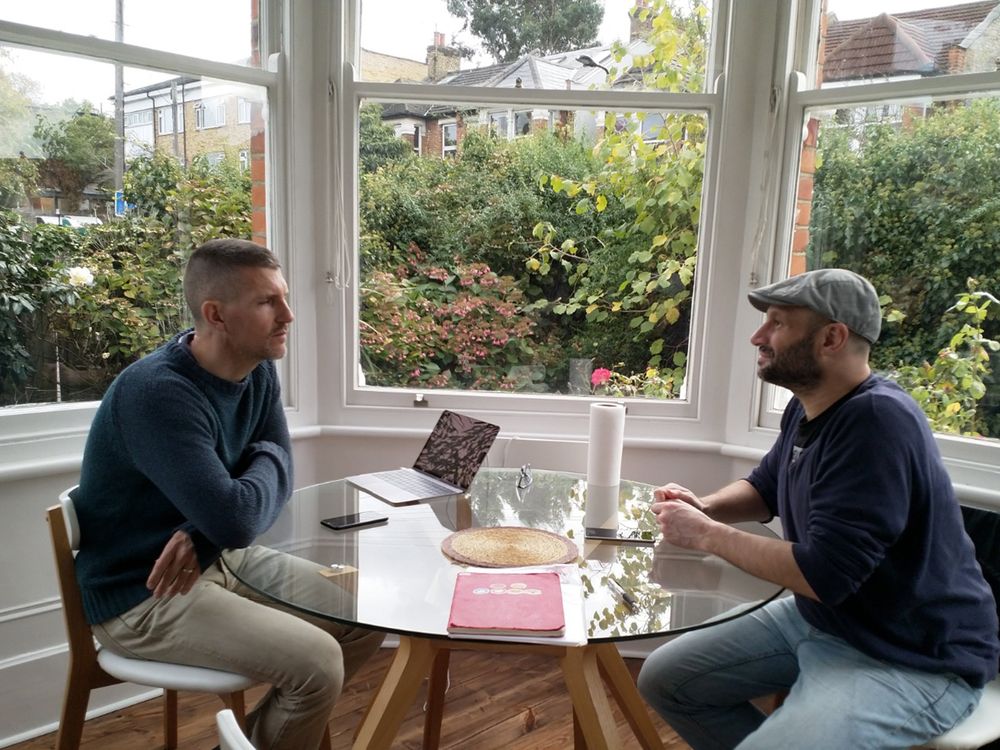Apogee was founded in 1998 by Josephine Wong and Daniel Szuc and is based in Hong Kong. We focus on helping organisations to gain a meaningful understanding of customers and employees.
User Experience

User Research
User Research by conversations with customers and stakeholders to collect stories that help provide clarity on direction on meaningful work. We aim to understand your customer needs and pain points more deeply through immersive research. Our methods include: ethnographic inquiry and depth interviews and we help to define value propositions with the project team by immersing in customer stories together and defining possible solutions, prioritising possible solutions to help inform roadmaps.
Facilitation
Facilitation provides guidance, mentoring and leads individuals and teams to both understand and define the problems in focus and to map out possible solutions together to define strategic intentions, motivations and meaningful outcomes. Storytelling & sensemaking helps us to understand how your customers interact with you. Service Mapping based on what we learn from stories helps to identify how customers interact with you across your touch points.
Building User/Customer Experience teams
Develop plans to identify the functional and transferable soft skills for the critical potential and capabilities needed in the delivery of 21st century work. This accounts for both remote, in office and hybrid teams across geographies.
Training Programs
Our training programs are customized on a range of topics related to understanding customer and business needs and team development. We base our training on the following foundations for both User/Customer Experience and Make Meaningful Work engagements:Enable Active Listening to Build Awareness
- Spark Curiosity to Solve Ambiguous Problems
- Foster Quality Relationships to Enable Contextual Adaptability
- Promote Diversity to Navigate Complexity
- Build Confidence to Make Meaningful Decisions
Mentoring Programs
Our facilitators provide customised mentoring programs on a range of topics related to character building, leadership and culture.
Evaluations
Product & Service walkthroughs to review against business goals, user needs, usability and design standards and critical questions to iterate for improvements. Usability Evaluations by inviting people to interact with your products and services, to observe usage and identify issues and opportunities to iterate for improvements.
UX Hong Kong
User Experience Hong Kong (UXHongKong) was founded in 2011 and is an annual learning event dedicated to bringing all product and service design disciplines together, from research, marketing, design, technology and the business to name a few, who are interested and passionate about designing great experiences for people and business for a better world for all.
Make Meaningful Work

The “Make Meaningful Work” experience helps to move from sleepwalking to sparkle. We are a platform to develop 21st century transferable skills.
Our Book
Make Meaningful Work - From Sleepwalking to Sparkle

A Learning Platform to Develop 21st Century Transferable Soft Skills
We are facing a world where technology will continue to replace humans for many jobs. This creates uncertainties in our world, it is vital to rethink how we learn and adapt to new work environments.
This is a book about how we can take ownership of ourselves, our team and our organisation by taking micro actions to shape the desired culture and behaviours to insert meaning into what we do.
Shows
Shows enable facilitated learning and development experiences covering a range of topics for people to attend to learn more about User/Customer Experience and Make Meaningful Work. We invite guests from all around the world to help us answer how to improve experiences for customers outside organisations and employees inside organisations.
Online Learning Modules
Our online learning and development programs are suitable for various audiences covering leadership, character, team building and culture.
Character
- Active listening to build awareness
- Self directed learning to build confidence
- Connecting tasks to a bigger picture
- Spark curiosity to solve ambiguous problems
- Being open to encourage constructive feedback
Leadership
- Identify risks towards new opportunities
- Align expectations and outcomes to motivate performance
- Communicate with intent to set direction
- Foster quality partnerships to enable contextual adaptability
- Take ownership to create collective responsibility
Culture
- Encourage respect and inclusivity to build trust
- Promote diversity to navigate complexity
- Confront and overcome difficulties and barriers
- Build confidence to make meaningful decisions
- Build supportive community to transcend boundaries
Tools
Practice Spotting™
Practice Spotting is an observational and sense-making tool.

What is Practice Spotting™
- Is an observational and sense-making tool to uncover implicit learning opportunities
- Enables you to widen and deepen multiple perspectives and challenge your assumptions using lenses
- Move implicit or unseen practices to make these explicit practices
- Record the observations onto a Practice Card with exercises to insert meaning into what you do.
Make Meaningful Work™ Guided Practice Journal
Reflect and record learnings individually, with a buddy or team.

Micro Exercises to Apply Immediately into your work
Use the Practice Cards to record micro exercises to apply immediately into your work. The Practices are derived from stories and the exercises help to connect and contextualise the practice into your work, move from words to actions and build character to insert meaning into what you do.
Sustain with the Make Meaningful Work™ Global Community
We have a range of Global facilitated and non facilitated learning and development Adventures and Events based on a range of outcomes to suit your practice needs.
Global Community
Apogee has supported and contributed to the building of both the User/Customer Experience and “Make Meaningful Work” through our articles, books, events and presentations. We are community builders and will continue to sustain this through the use of the Sparkle Studio and learning and development events.
The current framework and tools are also the results of workshops that have enjoyed numerous conversations in the following locations: Hong Kong, Shenzhen, Beijing, Shanghai, Taipei, Singapore, Jakarta, Kuala Lumpur, London, Brighton, Norwich, Melbourne, Canberra, Sydney, Bangalore, Ottawa, Toronto, Seattle, Atlanta, Portland, Wellington, Auckland, Hobart, Vercelli, Bologna, Milan, Jönköping, Lisbon, Dallas, Boston, Los Angeles, San Francisco and New York.
Game
We use game theory in our Sparkle Studio learning and development experiences for both the User /Customer Experience and Make Meaningful Work frameworks and learning event experiences.
Sparkle Studio
Sparkle Studio is both physical and online and encapsulates a fun practice and learning experience. The Sparkle Studio is a simulation of a TV or radio show where team members play different roles to produce a show together. In that process, team members will:
- Get to know each other in a different setting in a cross and interdisciplinary manner.
- Have opportunities to learn from each other.
- Use the Make Meaningful Work tools to observe and practice the implicit practices that can be connected and contextualised into real work.
- Have a structured and explicit way to reflect together.
- Rehearse and set the culture the team wants.
Apogee’s Experience
Apogee has also consulted and trained projects teams in domains including:
- Banking
- Hotels
- Logistics
- Media
- eCommerce
- Utilities
- Mobility
- Consumer electronics
- Telecoms
- Mutual funds
- Insurance
- Fashion and
- Furniture to name a few.
Our Principles
- Understanding People - meet with and understand people in the contexts they work and live to collect stories that provide previews into opportunities we may not see.
- Defining the Problem to be solved - inform a problem statement by understanding people and other data available, to provide evidence to support and strengthen a direction and roadmap and to ask what it means for a project going forward.
- Uncovering Assumptions - help project teams discuss their assumptions by sourcing the evidence available to support them that either challenges or accepts assumptions. This helps a team to prioritise features by determining what features deserve more of the project team’s time, focus and attention and what features require more research or further iterations.
- Collecting Stories from people - collect stories through the use of photos and video to help teams experience what it feels like to immerse in people’s lives and by sharing by reading stories and listening to details in the stories to help gain an appreciation of what it may mean for the products and services in focus.
- Immersing in Observations from the Stories - help project teams immerse in the observations that emerge from the stories in order to gain clearer insights on the way forward.
- Practicing Sensemaking to inform insights - through facilitated sensemaking help teams deconstruct and make sense of the data to determine what it might mean for the project going forward.
- Pausing to Reassess based on the insights - help project teams reassess what they have learned and iterating artefacts including but not limited to the problem statement, assumptions, a narrative, product and service concepts, principles and user scenarios.
- Structuring Practices to Make Meaningful Work - provide routines as part of project stages to help project teams structure and practice the fundamental routines to better understand the people we design for and how to bridge this into improvements to help make meaningful work.
- Defining Roles to guide the Routines - define roles that help project teams at work focus and delve deeply into design details, while allowing other work to take a step back to see how the elements of our work connect with one another, enabling us to deliver solutions that meet well identified customer needs that are part of a bigger roadmap.
- Encouraging self driven continuous learning - teach teams on how to practice user centred design through workshops and also by inviting stakeholders to join interviews as a way to gain empathy for the people we are designing for.

